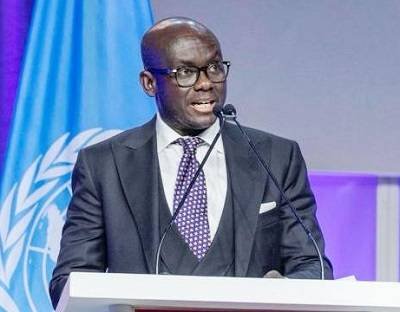
The Government of Ghana is in the process of developing a new strategic framework for fighting corruption, the Attorney-General and Minister of Justice, Mr Godfred Yeboah Dame has announced.
He was speaking at the 10th Conference of the States Parties to the United Nations Convention Against Corruption (UNCAC) on Tuesday at the World Congress Centre, Atlanta, United States of America.
To be called the National Anti-Corruption Action Plan 2 (NACAP2), Mr Dame said NACAP2 would be in place by the first quarter of 2025.
The Attorney-General and Minister of Justice told participants that Ghana’s anti-corruption effort had been relatively better coordinated and systematic resulting in significant progress since the adoption of NACAP in 2014.
Mr Dame said digitalisation of ports, pension scheme, Land Registry, digital property address system and Mobile Money Interoperability Systems, helped to enhance transparency, accountability and efficiency in the public sector.
Ghana recognises the centrality of access to information in the creation of accountability and integrity in society and ultimately the elimination of corruption. Thus, underlying the digitalisation agenda of the government, which comprises a robust National Identification System, Digital Property Address System, Paperless Port Systems, E-Justice Systems, Pensions and Insurance data, a digitised Land Registry and Mobile Money Interoperability System, is the overarching objective to enhance transparency, accountability and efficiency in the public sector.”
Additionally, the Attorney-General and Minister of Justice said digitised environment ultimately helps to eliminate and prevent corruption in the Passport Office, Ports and Harbours Authority, Registrar-General’s Department, National Health Insurance Service, Driver Vehicle and Licensing Authority, which hitherto were fertile grounds for corrupt activities.
He mentioned the Electronic Case Distribution System (ECDS) of the Judicial Service and courts and the Criminal Justice Case Tracking System (CTS) to enable key actors in the justice delivery system to electronically access and track the various stages of criminal cases from the point of arrest, investigation, prosecution, conviction, rehabilitation and release as some achievements in justice delivery.
To stem the tide of corruption, Mr Dame said Ghana was in the process of laying down a set of “far-reaching set of regulations” for the conduct of public officers.
The Attorney-General and Minister of Justice said a draft Conduct of Public Officers Law had undergone multiple stakeholder consultations with a number of public sector organisations, civil society and other interest groups and had been presented to Cabinet by the Attorney-General, as part of the process for its passage by Parliament.
When passed into law, Mr Dame said the Conduct of Public Officers Law would address issues like financial portfolios held by public officers before assuming public office, links to family business, improper enrichment, care of public property, professional practices, property, self-dealing, partiality in the performance of duties, sexual harassment, abuse of women and use of public or confidential information to further private interest.
He said the law would provide a gamut of stringent administrative measures and sanctions to deal with violations of the law, ranging from a bar against holding public office for limited periods (up to for forever, to penal measures).
BY MALIK SULLEMANA






